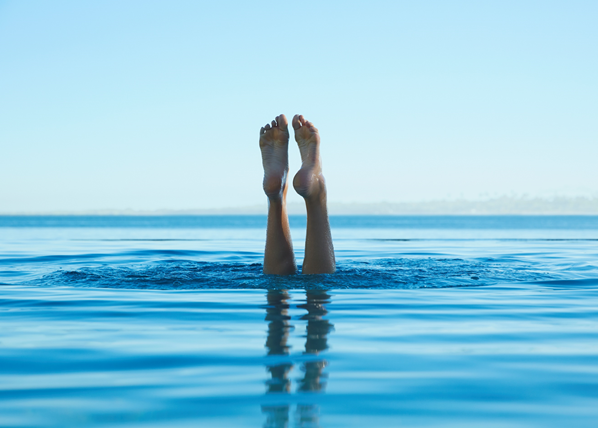By Sandy Sawh
Is the beach just a popular pastime or a cure for anything that may ail you? Your grandparents may wholeheartedly declare that a dip in the sea is the best way to conquer any cold or complaint. But what if, the water is the source of it?
On the surface, we are surrounded by beautiful and pristine beaches but when the UNEP revealed that 85% of wastewater entering the Caribbean Sea is not adequately treated you are compelled to take a closer look. Just under 50 years ago many countries believed that it was acceptable to liberally dump garbage and sewage into the oceans. With only 20% of the ocean mapped and explored it’s easy to understand why persons thought that the effects would be negligible or too minimal to matter. This meant that wastewater lines from domestic and industrial areas led directly to the sea. And travelling with it were a variety of toxins and pathogens.
While wastewater is made up of mostly water, it also contains sewage, which is generally described as water contaminated with faeces and/or urine. Untreated sewage carries with it a host of viruses, bacteria, and parasites to name a few. Swimming, bathing, or eating seafood from contaminated water sources can directly impact human health. Diarrhoea, cholera, and hepatitis are some of diseases and illnesses you can contract when infected. To determine whether beaches are safe to swim in it or if it is free from contaminated effluents, it is an accepted practice that you measure the levels of Escherichia coli (E coli) and Enterococci, two forms of bacteria commonly found in faecal matter[i].
In response to the need to ensure safe bathing water quality the international Blue Flag standard requires every beach operator to conduct these tests monthly and post the values on its public information board. This allows beach users to make informed decisions on whether the recreational water quality is acceptable, but it also keeps the public informed of any changes. It can be a rigorous standard to comply with, but it is a necessary mandate to ensure the safety of all beach goers.
In the absence of this information these are some key guidelines you can adhere to:
- Do not bathe near river mouths especially after heavy rainfall, with increased surface runoff and trash from land the risk of infection is higher
- Avoid stagnant, murky or poor smelling water
- Do no enter water with dead or sick animals nearby
- If you are vomiting, have diarrhoea or any other gastroenteritis-like symptoms you should not enter the water to prevent others from getting sick as well.
- If you suspect that water is contaminated contact the Water and Sewage Authority (WASA) or the relevant Regional Corporation in that district.
https://www.unep.org/cep/wastewater-sewage-and-sanitation
https://www.guardian.co.tt/news/ima-tests-water-from-6-points-6.2.837830.1f42ff70c1


